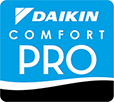Finding the right air conditioning solution is crucial when it comes to maintaining comfort in your home. As homeowners become increasingly conscious of energy efficiency and environmentally friendly options, geothermal cooling systems have emerged as an attractive choice. These systems harness the Earth’s consistent temperatures to provide cost-effective and environmentally friendly cooling for your home. As experts in AC installation, repair, and maintenance, Holy City Heating & Air, LLC offers a thorough guide on selecting the right geothermal cooling system for your home.
A geothermal cooling system enhances the comfort of your living space and considerably reduces your carbon footprint and utility bills. By utilizing the Earth’s natural thermal properties, these systems efficiently cool your indoor space without adding to harmful greenhouse gas emissions. Before starting your journey into the world of geothermal cooling, it’s essential to understand how these systems work and the factors to consider when choosing the right system for your home.
Explore various factors that are vital in making an informed decision when choosing a geothermal cooling system. From understanding the different types of geothermal systems and their installation requirements to knowing the essential features and benefits, our expert insights will help you make the right choice for your home. Moreover, learn the importance of working with our experienced professionals to install and maintain your geothermal cooling system.
Understanding Geothermal Cooling Systems: A Comprehensive Guide
Geothermal cooling systems operate by exchanging heat with the Earth through buried pipes called ground loops. The loop circulates a fluid that absorbs heat from the ground during the warmer months and distributes it into the ground during the colder months. The loop configuration, installation, and other components determine the efficiency of geothermal cooling systems.
Types of Geothermal Cooling Systems
When selecting a geothermal cooling system for your home, it’s essential to understand the various types available. The choice depends on your property’s specific needs, budget constraints, and location. There are three main categories of geothermal cooling systems:
- Closed Loop Systems: These systems use an anti-freeze solution that circulates through ground loops buried either horizontally or vertically. Closed loop systems are further subdivided into horizontal, vertical, and pond/lake configurations. Horizontal systems are ideal for properties with sufficient land area, while vertical systems are best for limited land space properties. Pond or lake systems are viable when a substantial water body is nearby.
- Open Loop Systems: Open loop systems utilize a water source like a well or lake to circulate water directly through the geothermal heat pump. These systems are cost-effective and suitable for properties with ready access to a clean water source.
- Hybrid Systems: Hybrid geothermal cooling systems combine the advantages of traditional cooling systems with geothermal technology. In this setup, a conventional air conditioner or heat pump is used in tandem with the geothermal heat pump to optimize energy efficiency and comfort levels.
Factors to Consider When Choosing a Geothermal Cooling System
Various factors come into play when selecting the right geothermal cooling system for your home. Careful consideration of these aspects ensures you make an informed decision and enjoy maximum benefits from your investment.
- Climate: The local climate is critical in determining the most appropriate geothermal cooling system for your home. As these systems rely on the Earth’s temperature to function efficiently, assessing the regional climate, soil type, and ground temperature is essential to optimize your system’s configuration.
- Property Size and Land Availability: The geothermal system installation requires adequate land space. The design of your geothermal system, whether it’s a horizontal or vertical loop, depends on the size and layout of your property. Consulting with experienced professionals can help you determine the best system for your available land space.
- Budget: Investing in a geothermal cooling system is a long-term decision requiring a substantial initial investment. Installing a geothermal system has high upfront costs but pays off in the long run with reduced energy bills and lower maintenance costs. Considering your budget and financing options is essential to ensure you choose a system that meets your expectations without straining your finances.
- System Efficiency: The energy efficiency of a geothermal cooling system is based on the Coefficient of Performance (COP). It’s crucial to select a system with a higher COP rating to guarantee a more efficient and eco-friendly cooling option for your home.
Working with Professionals
While a geothermal cooling system might seem like a tremendous standalone solution, its ultimate performance depends on the quality of installation and ongoing maintenance. Engaging an experienced professional team ensures that your system is set up correctly, operates optimally, and provides the desired comfort and energy savings.
Professional services cover system design, loop configuration, equipment sizing, and installation. They also provide vital post-installation maintenance to ensure the longevity and efficiency of your geothermal cooling investment. An experienced team also handles specialized tasks like system troubleshooting, repair, and replacement.
Conclusion
A geothermal cooling system is a substantial yet rewarding investment for any homeowner seeking an energy-efficient and eco-friendly cooling solution. By understanding the different types of systems and factors that influence your choice, you can confidently make an informed decision for your home. Of course, the key to unlocking the full potential of a geothermal cooling system lies in partnering with a team of experts who understand the nuances of installation and ongoing maintenance.
Are you ready to embrace a cost-effective, environment-friendly solution for your home’s air conditioning needs? Trust our expert team at Holy City Heating & Air, LLC to provide top-notch HVAC services for your geothermal cooling investment in Charleston, SC and surrounding areas. Contact us today to schedule an appointment!






